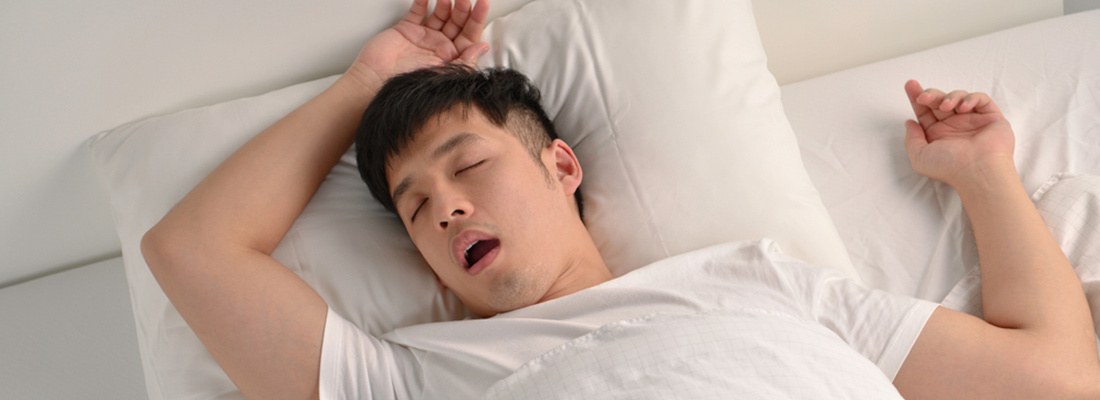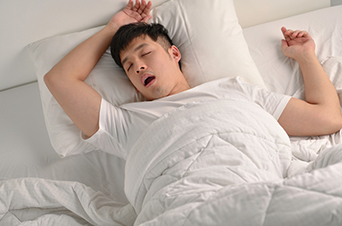
Introduction
A one-word answer would be: Yes. You can have sleep apnea without snoring. While a commonly linked symptom of sleep apnea, snoring is not necessarily what defines sleep apnea. So, you can experience sleep apnea without snoring.
Want to know more about sleep apnea and its link with snoring? Follow us below.
Can You Have Sleep Apnea Without Snoring?
According to statistics, 40 percent of male and 60 percent of females around the ages of 40-60 snore. That accounts for a large population that snores. Therefore, we cannot say that the population that snores ought to be having sleep apnea.
So, the answer to the question: can you have sleep apnea without snoring is simply Yes.
Because sleep apnea is so serious, if you snore on a regular basis or have other symptoms, to see if you have it, tests should be done. Other signs of sleep apnea include daytime tiredness, difficulties concentrating, restless sleep, gasping or choking, or observed breathing pauses during sleep, elevated blood pressure, headaches, and more. And again, you can have sleep apnea without snoring. Snoring is not necessarily a main symptom behind sleep apnea.
Do You Know What Sleep Apnea Is?
A sound sleep is necessary for your health. However, sleep apnea and snoring can affect your peaceful nights and affect your daytime routine. Although you can have sleep apnea without snoring.
Sleep apnea is a serious sleep disorder that affects your breathing pattern. Breathing stops and starts at intervals repeatedly. But how long does this interval last? It may last around 10-30 seconds. Sometimes, you can have sleep apnea without knowing. However, there is a way to figure it out. If you feel morning headaches that are difficult to explain, or exhaustion and sleeplessness during daytime, you need to visit a good sleep diagnosis and treatment center. If visiting is not feasible, sleep telemedicine services might be the right substitute.
There are two primary types: central sleep apnea and obstructive sleep apnea (OSA). OSA, the more common form, occurs when the muscles at the back of the throat relax excessively. Central sleep apnea, on the other hand, results from the brain failing to send proper signals to the muscles that control breathing.
Types of Sleep Apnea
Whatever the types of sleep apnea be, you can have sleep apnea without snoring. Sleep apnea can be of three types:
Obstructive Sleep Apnea
When the throat relaxes while asleep, the upper airway becomes closed in obstructive sleep apnea.
The main causes include:
- Throat muscles or soft tissue in the back of the throat close
- The airway is narrowing
- A big tongue or extra fatty tissue in the throat restricts the airway.
For these reasons, you are unable to obtain adequate oxygen, and your blood oxygen levels drop. When your brain detects this, it awakens you so that the airway can reopen.
When you awaken, it is usually brief, and you may gasp or choke. The pattern repeats throughout the night, anywhere from 5 to 30 times every hour, influencing the quality of your sleep.
Central Sleep Apnea
Although a less common form, central sleep apnea is associated with brain issues. The brain does not deliver appropriate signals to the muscles that control breathing. Snoring is not a symptom of central sleep apnea because the brain’s lack of signaling causes breathing interruptions or pauses.
Complex Sleep Apnea
It is something in between obstructive and central sleep apnea. Also known as treatment-emergent sleep apnea, it becomes more apparent when the issue of obstructive sleep apnea doesn’t get resolved. Physicians first identify it as OSA and when it doesn’t get treated, the signals indicate that it’s complex sleep apnea.
Are Sleep Apnea and Snoring Related?
When snoring is a paramount symptom of sleep apnea, what is their relationship? Snoring is a natural process where air moving through the narrow airways produces sound. The main causes include alcohol use, sleep deprivation, blocked airways, or even sleep position.
Although snoring is a common symptom of sleep apnea, it is not necessarily linked to it. Especially in the central sleep apnea, breathing is difficult, so snoring is absent. So, you can experience sleep apnea without snoring.
What Are the Common Symptoms of Sleep Apnea?
There are numerous symptoms that sleep apnea show but some of them are listed here:
- Daytime sleepiness: You may feel drowsiness during working, driving or other daily life activities.
- Waking up tired or exhausted: When you think you have a sound sleep but still wake up tired, you might have sleep apnea.
- Snoring: As mentioned above, it is a common symptom of sleep apnea yet not necessarily the one. You can have sleep apnea without snoring. You may snore or not, but snoring is a common detection for sleep apnea.
- Mood swings: You may undergo several mood swings like depression and anxiety.
- Disruptions in brain functions: This may include any brain-related issues like memory loss, trouble while concentrating, etc.
- Waking up several times during night: You may wake up several times during night without remembering. Therefore, it is a difficult symptom to detect.
- Insomnia
- Sexual dysfunction
- Night sweats and restlessness during nights
- Waking up with a headache
- Waking up with the feeling of choking
Treatment for Sleep Apnea
Several treatment options are available with the main aim of keeping your airways open during sleep. The main thing is to enable you to breathe properly during sleep and have peaceful nights. So, here are some:
CPAP Machine
The most frequent sleep apnea treatment is continuous positive airway pressure (CPAP) therapy. This entails sleeping with a mask over your nose and/or mouth attached to a machine that provides a constant flow of air to keep your airway open. Most patients with sleep apnea benefit greatly from CPAP therapy, but others may find it uncomfortable or difficult to use daily.
Also Read: Benefits of CPAP Machine That Improve Your Health
Oral Appliances
Another way to treat sleep apnea is using oral appliances. Customized devices will be provided for your mouth. These devices will fix between the tongue or jaw and reposition them. In this way, it will help keep your airways open during sleep.
Surgery
If CPAP or oral appliances do not provide adequate relief, surgery may be considered. Surgery for sleep apnea entails removing extra tissue from the throat to reduce airway blockages.
Lifestyle changes
Your primary care physician may also recommend lifestyle adjustments to help you manage your sleep apnea symptoms. Although you can have sleep apnea without snoring, there is a need of optimal lifestyle changes to manage it. Losing weight, quitting smoking, avoiding alcohol before bed, and practicing excellent sleep hygiene can all help ease sleep apnea symptoms and improve sleep quality.
Did you know untreated sleep apnea can impact your life tremendously. Find out here.
How to Pick the Right Position if You have Sleep Apnea?
Choosing the best sleeping posture is critical for people with obstructive sleep apnea, a disorder characterized by airway collapse and breathing pauses while sleeping. Sleep apnea is typically associated with snoring, although the severity of the condition can be altered by one’s sleeping posture. According to Salas, a renowned sleep expert, sleeping in positions that promote airway openness can reduce snoring and mild apnea episodes. Sleeping on your side or stomach promotes improved airflow and reduces the possibility of airway obstruction. Individuals who avoid the supine position (laying on their back) can lessen the gravitational force on their airways, reducing the number of breathing interruptions. Understanding the impact of sleep position on obstructive sleep apnea enables individuals to make informed decisions, supporting better sleep.
Want to Get Treated at Home?
Now we know that a person can have sleep apnea without snoring, it’s necessary to get it diagnosed at an appropriate time.
It’s surprising but sleep apnea and other related sleep disorders can be treated at home. Home Sleep Center provides you with the optimal solution of testing at home. With its efficient Telemedicine services and team of experts, you can get your sleep apnea tested and treated at home.
Additionally, if you have insomnia or other sleep-related diseases, you can contact us for some tailored solutions. Our team understands your issues and provides the optimal treatment in the context of advice or devices to monitor and treat them.
Conclusion
To conclude, sleep apnea is a serious sleep-related disorder. Sometimes, you can identify it easily and sometimes, you need sleep studies to identify them. If you need an optimal sleep study center to diagnose your disorder and get treated from the comfort of your home. Home Sleep Center is the best option. With a team of experts and utilization of optimal devices, you can get your sleep treated at home. We offer Telemedicine services.
As regards sleep apnea, it is difficult to identify at points. Moreover, snoring is a paramount symptom of sleep apnea, although it’s not necessarily always linked to it. You can have sleep apnea without snoring. Whether accompanied by snoring or not, recognizing the signs, seeking professional help, and exploring suitable treatments are crucial steps toward better sleep and improved overall health. So, contact your trusted sleep center today and rejuvenate your peaceful sleep.

